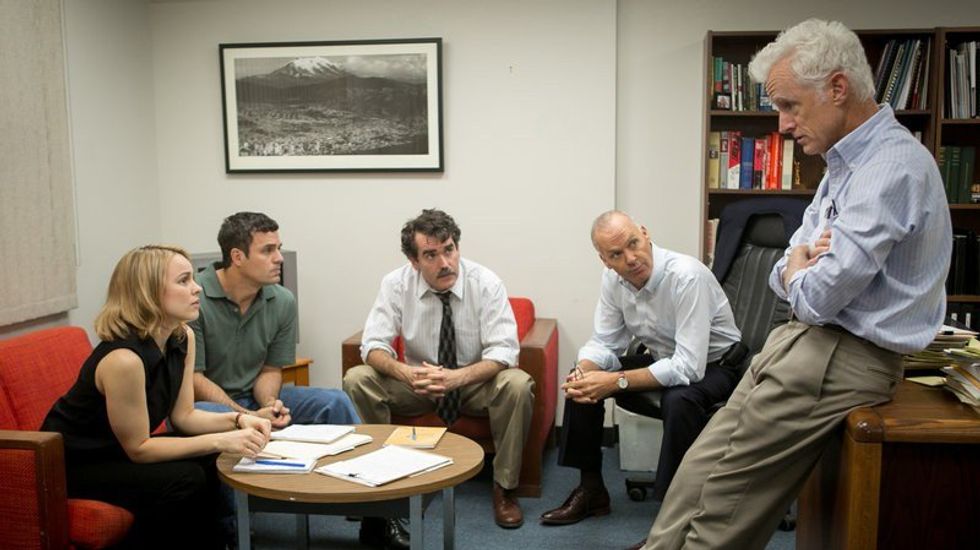Last weekend, the 88th Academy Awards aired across the nation, and it was a memorable night for everyone. Leo finally won an Oscar for his role in “The Revenant,” “Mad Max: Fury Road” won most of the awards that evening, but the big award of the night, Best Picture, went to a movie called “Spotlight.”
“Spotlight” is a movie based on true events and revolves around a team of investigative journalists who expose child abuse by Boston priests and the Catholic Church coverup that ensues. Throughout the course of the film, the journalists discover that 87 priests have gotten away with the crimes by secret settlements and sweeping the matter under the rug. At the end of the movie, their expose is published, and in the months to follow, victims keep calling in to share their stories so the world can know of the wrongs done to them by a priest. The main point of the film falls primarily over the corrupt Catholic Church and the antiquated justice system of the nation, but its goal is not to attack either but instead to highlight the importance of journalism back then and especially now.
When I was in high school, I was in a newspaper class and often wrote about the theater kids -- their accomplishments and their productions. I really liked writing about them because, even though it was a school newspaper, it was refreshing getting to write about an everyday person. Today, most of the stuff we see on the news are the flashy things: sex scandals, murders, who wore what best, and stupid things that celebrities do. But there is never really anything about the people. Things that affect them, things that are important to them. When I realized this was when I knew that I wanted to be a journalist. I want to write about the common John and Jane who don’t get their moment in the sun but have a story to tell. And the movie “Spotlight” reaffirmed my dream of being a journalist.
Many of the victims in the film had to wait 20 years to get their story of abuse told, and that is just not OK. The people have the right to know about events that will affect them, both locally and nationally. But a problem affecting journalism today is technology. Today we are more in danger than ever to be misinformed by the media as well as the 24-hour news cycle that always has something to say even there’s nothing to say. People simply don’t have confidence in the media like they used to. And that’s why it is important to me and to other aspiring journalists to revolutionize the media and to bring journalism back to its former glory.
At the end of the movie, the director lists places in the United States where the Catholic Church has hidden the abuse of priests from the public, and our small town, El Paso, Texas, is one of them. In 1972, Reverend David A. Holley molested over 32 boys during his three years as a priest in St. Jude’s Mission in Alamogordo, which was a part of the El Paso Diocese. And all of the allegations and all the complaints against Holley ended in legal settlements. This happened well before our time, but many people probably weren’t aware that something like this had happened until “Spotlight,” and a lot of people probably still don’t know.
In a nation that has the freedom of press, it is important for citizens to know the facts. Just like we need teachers and doctors, we need good journalists. It is a necessity.
We live in a world where ads and politicians are trying to win us over, but the information they’re providing us is only a piece in a puzzle. Some of it just doesn’t fit. It is up to journalists to put that information for the people in context. Is it trustworthy? Why is it important? Who is it important to? How did this happen? What could happen next? Journalists answer the questions that you haven’t even thought about yet. It is the duty of a journalist to inform the people, to raise awareness, to give you the facts, and to make the people think about the world as it is right now. Information is power, and that power should be used for the greater good.
“Words are not meant to stir the air only; they are capable of moving greater things.” -- Natsume Soseki





















